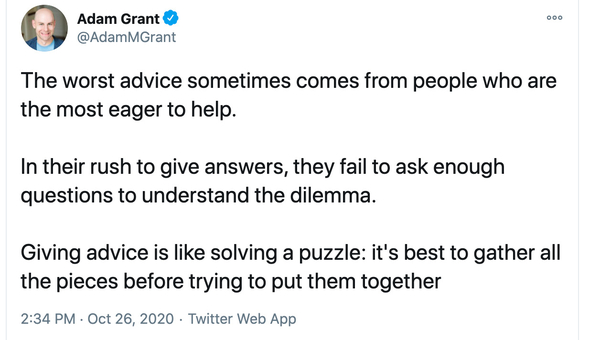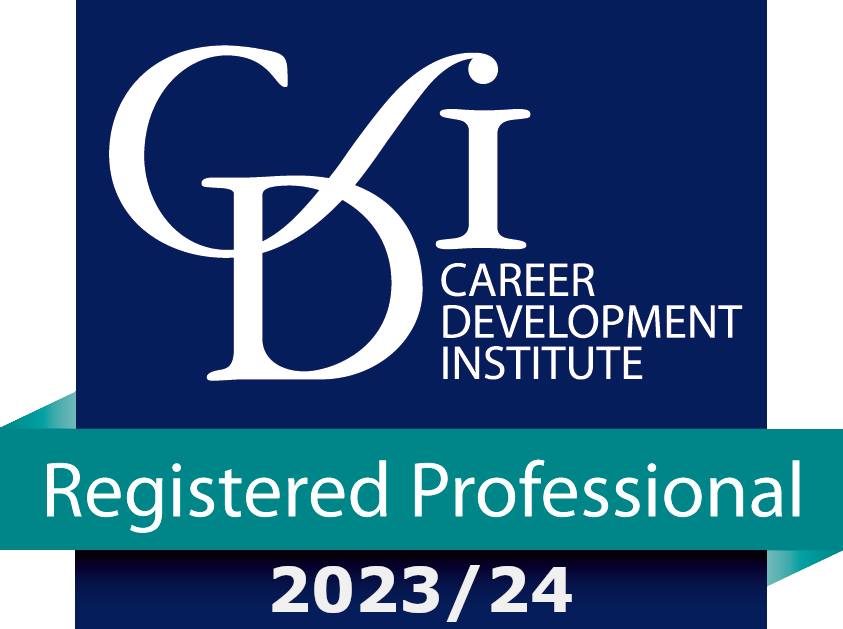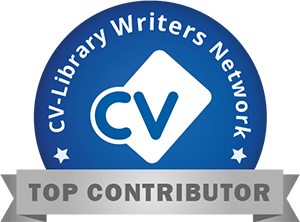Teaching
- Giving Advice is Like Solving a Puzzle

Giving Advice is Like Solving a Puzzle
Tuesday 27th October 2020
One of the things I'm often asked is why do we need careers advisers. I give some reasons that I've heard and my counter arguments in brackets.
- I had an interview when I was at school, they told me I should be a... they were so wrong. {Careers Advisers never tell anyone what they SHOULD be, they suggest roles to support your own decision making process)
- Anyone can give advice Just look back to 2014 when Vince Cable made the error of saying teachers know about the world of work.
- Even a computer can do it, What happened when the NCS tool was lampooned on Social Media
Making the explanation simpler
I was moved to share this tweet by American Organisational Psychologist Adam Grant as a very quick way of countering the arguments against Careers Advisers without having to go through the whole gamut of evidence as to why Career Development Professionals are so important to the career management of people's lives.
Quite simply put they
- Spend a lot of time ensuring they have all the relevant information that would take the average person hours to find.
- Spend at least 25 hours a year undergoing CPD to keep up with the changing world of work.
- Are trained in coaching skills and psychological techniques to support clients
- Have a thorough knowledge of career development theories. Wait you didn't know there were theories of how careers develop? Have a look at Prof Tristram Hooley's excellent YouTube videos for a brief overview
The Difference Between Advice and Guidance
I often think Careers Advisers are poorly named as they do far more than advise. Whilst ‘careers advice’ can involve things like signposting to information about learning and work opportunities, ‘careers guidance’ is more in-depth and enables the adviser to explore interests, skills, aptitudes, and attitudes
My Final Hobby Horse for Today
I see many acronyms around careers work CEIAG (Careers Education Advice and Guidance) seems to be the acronym that fits what goes on in schools rather more than the often used IAG or CIAG I think The CDI sums it up well in their document The differences between career information and guidance





